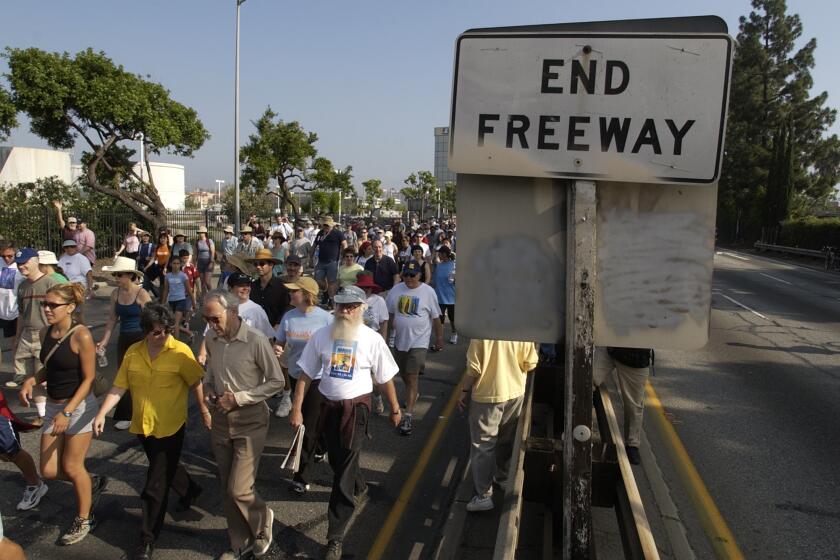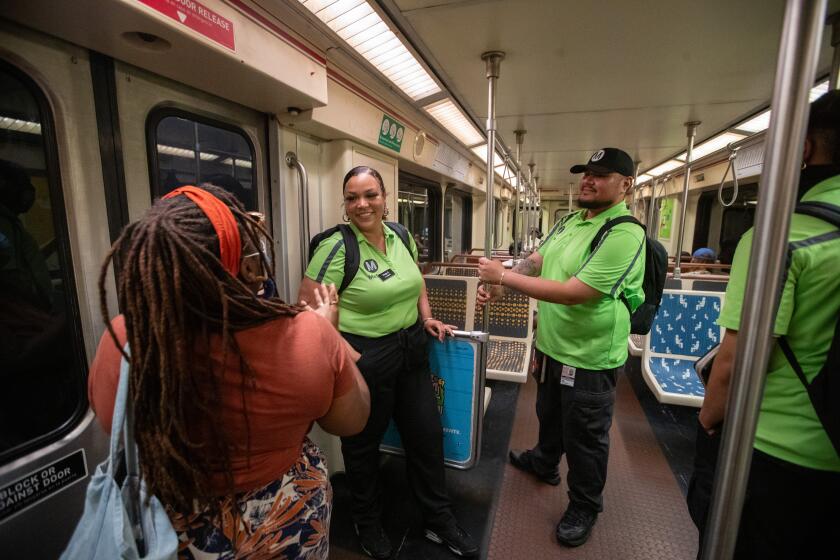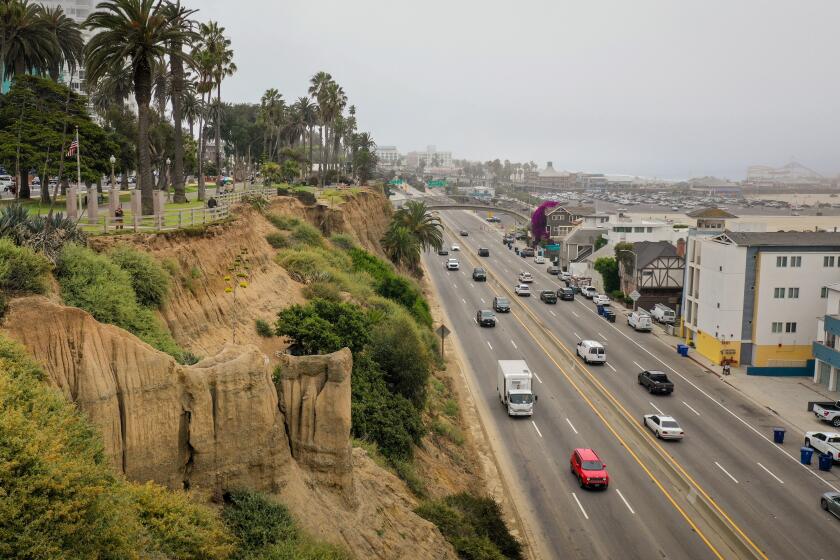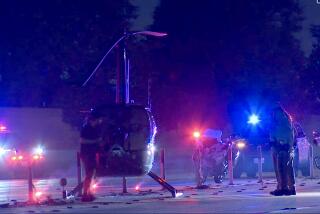Coming this weekend to L.A.: A freeway without cars, if only for a few hours
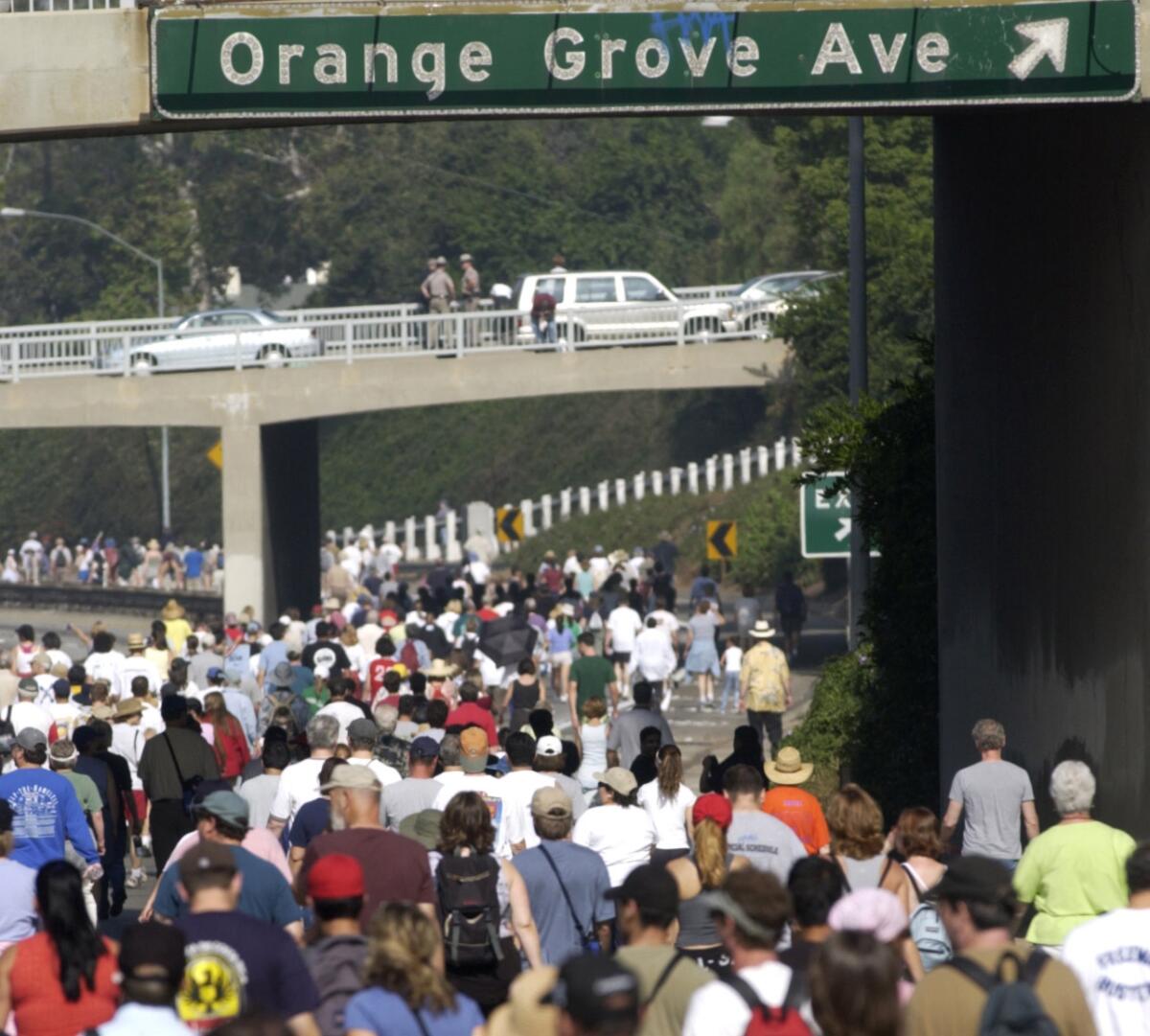
- Share via
A rare occurrence is set to unfold Sunday morning on the Arroyo Seco Parkway: No cars will be allowed.
Instead, the stretch of the 110 Freeway that snakes its way through South Pasadena and Northeast Los Angeles — usually crammed with motorists — will be people-powered and reserved for pedestrians, bicyclists and anyone else who wants to explore the area from a new perspective.
The celebration known as 626 Golden Streets ArroyoFest is a sequel to the first ArroyoFest, held 20 years ago.
Hosted by Active San Gabriel Valley and presented by Metro, the free, family-friendly event will shut down seven miles of the freeway and local streets from 7 to 11 a.m., encouraging pedestrians and bicyclists to take over the roads similar to the open-streets concept behind the car-free CicLAvia events. The emphasis for ArroyoFest is on foot traffic and allowing people to explore the neighborhoods of Lincoln Heights, Cypress Park, Highland Park, Hermon, South Pasadena and Pasadena.
For the first time since 2003, ArroyoFest will close a section of the Arroyo Seco Parkway for people to walk, bike, skate and run.
Organizers will kick off the festival on Mission Street in South Pasadena at 6:45 a.m. The route runs nearly parallel to the Metro A Line, making it easy for visitors to take public transit and get to the party from light rail stations. Children 4 and under can ride for free on the Metro, Metrolink and Foothill Transit, according to event organizers.
Slower-moving pedestrian traffic will be reserved for the freeway’s southbound lanes, and faster-moving traffic such as bicycles, scooters, skateboards and other wheeled devices will be in the northbound lanes.
Runners can also sign up 30 minutes before a 10K race that is set to start at 7 a.m. in South Pasadena.
Three main hub areas will dot the festival route and feature live entertainment, free basic bike repair and a private baby-changing and breast-feeding booth, according to the organizers. Vendors, restrooms and hand-washing stations will also be spread throughout the festival route.
After the 110 reopens to cars, visitors can enjoy food trucks and music at Lacy Street Neighborhood Park, the Lincoln Heights hub, until 1 p.m. and at Mission Street, the South Pasadena hub, until 2 p.m. Sycamore Grove Park, the Highland Park hub, will host the Lummis Day Festival, an annual celebration of the arts and cultures of Northeast L.A., which will run through 3 p.m.
There are more than 300 transit ambassadors riding the Metro transit system. They could become a permanent part of the transit experience.
ArroyoFest organizers relied on grant funding from Metro and multiple agencies to coordinate the freeway closure.
The Arroyo Seco Parkway was first opened in 1940 — becoming the first freeway in the Western U.S., according to the California Historical Society. It was originally designed to carry about 27,000 cars a day, but it now has 100,000 daily commuters traversing the winding curves and narrow offramps.
The idea of reimagining the space is exciting for a number of reasons, said Erick Huerta, a board member with the transportation advocacy group People for Mobility Justice and a longtime organizer of bicycle rides throughout Los Angeles.
“We are going to be on a freeway and we are going to have an opportunity to do what we want,” said Huerta. “It’s such a far-fetched idea in a car-centric city like Los Angeles.”
Huerta said he relishes the opportunity to explore a space when it’s reimagined for pedestrians or for a slower-paced crowd who can enjoy the details of a neighborhood instead of zooming past in a vehicle.
“These types of events help people rethink space,” said Huerta, who plans to ride the 110 on a bicycle with his partner and some music.
L.A. Metro’s “One Car Challenge” offers up to $599 and asks residents in households with multiple cars to drive just one of their cars for five weeks.
Sunday’s festival mirrors the last ArroyoFest that closed down part of the 110 in 2003. That event, organized by Occidental College faculty, Caltrans and residents, came several years before the first CicLAvia.
The last ArroyoFest took 10 years to plan, ActiveSGV program director Wes Reutimann said earlier this year.
“There are a lot of pieces that go into putting on an event like this,” Reutimann said. “It speaks volumes that the first one, they were able to successfully stage it in 2003.”
In a statement, Reutimann said organizers are “excited to bring this wonderful community event back after twenty years so a whole new generation can explore the historic parkway like only once before.”
Jose Zavala, founder of race management and wellness marketing company Aztlan Athletics, attended the last ArroyoFest with his children 20 years ago.
“It felt sort of like the way cities in Mexico close down streets to hold festivals,” Zavala said. “People were just caught off guard. They walked around in awe, ran home and got their families, their bicycles and ran onto the freeway.”
More to Read
Sign up for Essential California
The most important California stories and recommendations in your inbox every morning.
You may occasionally receive promotional content from the Los Angeles Times.
